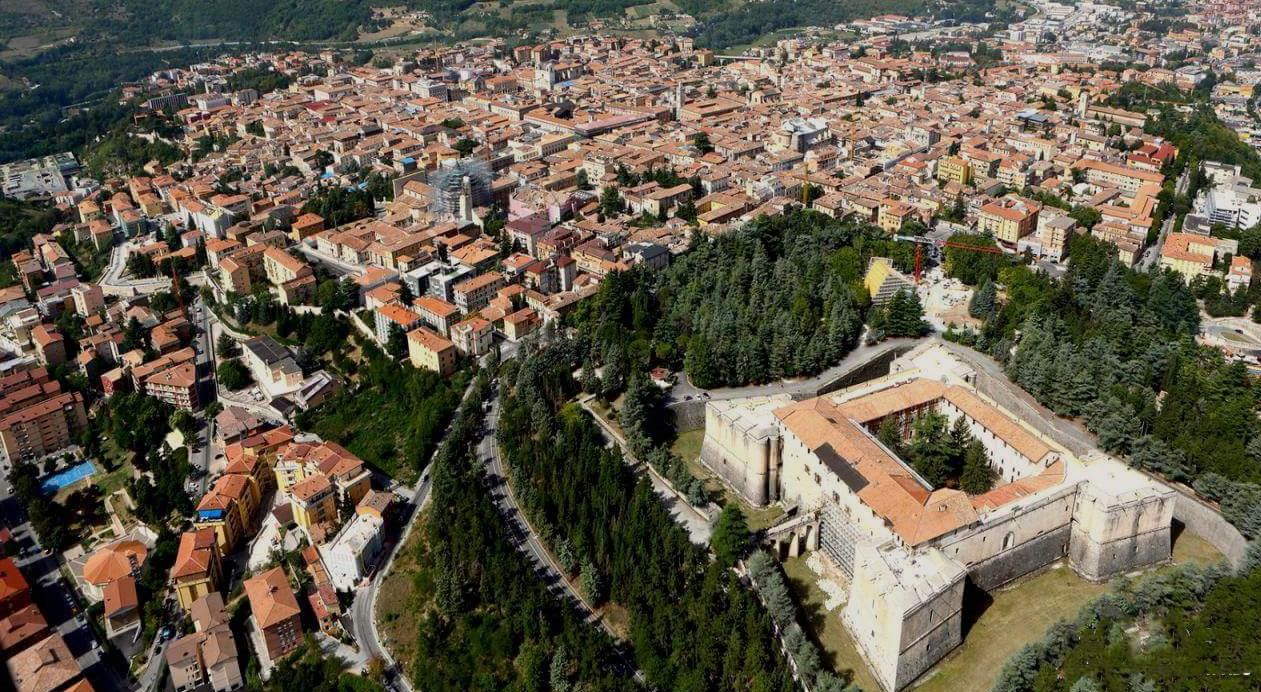Italian Capital of Culture 2026 is L’Aquila, which will succeed Agrigento, Capital of Culture 2025.
Announcing the winner during the proclamation ceremony held this morning at the Ministry of Culture was Culture Minister Gennaro Sangiuliano, in the presence of representatives of the ten finalist cities. In addition to L’Aquila, the other finalist cities were Agnone (Isernia); Alba (Cuneo); Gaeta (Latina); Latina; Lucera (Foggia); Maratea (Potenza); Rimini; Treviso; and Unione dei Comuni Valdichiana Senese (Siena).The new Italian Capital of Culture was chosen by a Jury chaired by Davide Maria Desario and composed of Virginia Lozito, Luisa Piacentini, Andrea Prencipe, Andrea Rebaglio, Daniela Tisi, and Isabella Valente.
The title of Italian Capital of Culture is awarded for the duration of one year. The Italian Capital of Culture 2026 will receive 1 million euros for the implementation of the project, with the aim of showcasing its original features and the factors that determine its cultural development, understood as an engine for the growth of the entire community.
“L’Aquila is about to celebrate 15 years since the earthquake. An event that affected us not only as institutions, but as citizens. Being the Italian Capital of Culture is not a compensation, but represents an element around which to rebuild the social fabric of our community,” said L’Aquila Mayor Pierluigi Biondi. “Culture is a foundational element, it is recovery of identity and projection into the future. We guarantee that we will be up to the task you assign us today.”
These are the motivations of the jury: “The dossier proposes a model for the enhancement of the territory and cultural, artistic and natural heritage. It aims at the recovery of identity, focusing on culture understood as a driver for growth and as a founding element of a community. The project involves a relevant number of realities, creating a strong glue with the surrounding territories. The planned budget is consistent with the objectives. The spending strategy indicated is bound to have an important multiplier effect. The schedule of events and initiatives is developed for the entire year and covers the entire panorama of artistic and cultural expression: cinema, theater, music, visual arts. Appreciated is the focus on young people who will not only be users but actors. The project fulfills the indicators of the call, with good integration between public and private. Very much appreciated the centrality and involvement of the museum, library and university system. The rating is excellent.”
L’Aquila Multiverse City is an ambitious program of artistic experimentation for the creation of a cultural-based territorial socio-economic revitalization model capable of propelling it into the future by following the 4 axes of the New European Agenda for Culture: social cohesion, public health well-being, creativity and innovation, and socio-environmental sustainability.
Imagining L’Aquila as a Multiverse City means seeing it as a complex reality in which multiple parallel dimensions coexist and interact, a city that opens up unexplored possibilities for artistic creativity and urban regeneration precisely because of the dialogical coexistence of multiple spatial-temporal and cultural dimensions. L’Aquila Multiverse City will thus be able to constitute a replicable model of sustainable development also for Rieti and the Italian and European Inner Areas. A model that aspires to intelligently reshape the relationship between the urban center and a constellation of small towns with a strong social and cultural identity. A territory, in this sense, still vital and capable of imagining a future project, but in need of a decisive push to open a new, truly generative cycle.
The 5 strands Multiculturality, Multidisciplinarity, Multitemporality, Multireproducibility and Multinaturality will explore, through a rich program of initiatives, the complexity and cultural and environmental richness that characterizes L’Aquila, Rieti and the surrounding villages. The widespread events, in addition to creating an ecosystem conducive to creativity, will generate benefits in terms of social inclusion and psycho-physical well-being.
The new artistic productions, the growth and exchange of diffuse skills, and the regenerated spaces for the realization of the multiple initiatives will help build a lasting legacy for the present and the future of this territory rich in resources and unexpressed potential. L’Aquila Multiverse City will be the beginning of this journey.
“All the cities that participated in the competition should be Capitals of Culture, and personally I would like them all to be awarded for their beauty,” said Minister Sangiuliano. “Italy has great wealth and so many places that deserve a trip. I congratulate the city of L’Aquila, which will best represent our nation in 2026, and I fully welcome the idea of finding as of now, for the next call for proposals, the necessary resources to award all the finalist cities so that these projects will live on for a long time.”
 |
| L'Aquila is the Italian Capital of Culture 2026 |
Warning: the translation into English of the original Italian article was created using automatic tools. We undertake to review all articles, but we do not guarantee the total absence of inaccuracies in the translation due to the program. You can find the original by clicking on the ITA button. If you find any mistake,please contact us.